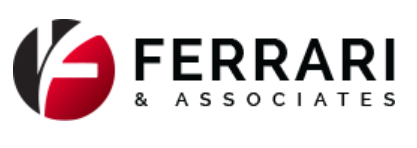Global Law Experts top search results to tackle law in U.S. Economic Sanctions: Tailored solutions for every legal challenge. Let experienced lawyers guide you through legal disputes and challenges with law insights and expertise knowledge. Our members hold proven strategies and solutions for every complex legal need.

Since 2010, the Global Law Experts annual awards have been celebrating excellence, innovation and performance across the legal communities from around the world.


No results available Reset filters?
The U.S. Economic Sanctions Law Practice is a highly specialized field dedicated to advising clients on the complex web of U.S. laws and regulations that prohibit or restrict trade and financial transactions with targeted countries, entities, and individuals for foreign policy and national security purposes. This practice involves counseling businesses on their compliance obligations to avoid violations, which includes developing and implementing robust risk-based compliance programs and conducting due diligence on customers and transaction partners. Lawyers in this field also assist clients in navigating the intricate process of applying for specific licenses from government agencies, such as the Office of Foreign Assets Control (OFAC), to authorize activities that would otherwise be prohibited. A critical component of this practice is also defensive, involving the representation of clients in government investigations and enforcement actions for alleged sanction violations.
U.S. economic sanctions are a primary tool of foreign policy and national security used by the U.S. government to influence the behavior of foreign actors. They consist of a broad range of financial and trade restrictions, including asset freezes, prohibitions on commercial and financial transactions, and trade embargoes. These measures are designed to isolate targeted countries, regimes, organizations, and individuals by cutting them off from the U.S. financial system and restricting their access to international commerce.
The primary government body that administers and enforces most U.S. economic sanctions programs is the Department of the Treasury’s Office of Foreign Assets Control (OFAC). This agency is responsible for promulgating regulations, designating individuals and entities for sanctions, issuing licenses to authorize specific transactions, and imposing civil penalties for violations. Other government agencies, such as the Departments of State and Commerce, also play significant roles in implementing and enforcing various sanctions regimes.
To be placed on a sanctions list means a person or entity has been officially designated as a target of U.S. sanctions. For those on the Specially Designated Nationals and Blocked Persons (SDN) List, the consequences are severe: any property or interests in property they have within U.S. jurisdiction are frozen, and U.S. persons are almost universally prohibited from engaging in any transactions or dealings with them. This designation effectively isolates the listed party from the U.S. financial and commercial systems.
The penalties for violating U.S. sanctions are exceptionally severe. They can include substantial civil monetary fines, which can reach millions of dollars for each violation. For willful violations, there is also the risk of criminal prosecution, which can result in even larger fines and lengthy prison sentences for the individuals involved. Beyond the legal penalties, a violation can cause significant reputational damage and lead to the loss of banking relationships, severely impacting a company’s ability to operate globally.
U.S. sanctions laws have a broad jurisdictional reach. They apply to all U.S. persons, which includes U.S. citizens and permanent residents wherever they are located, all entities organized under U.S. law and their foreign branches, and any person or entity physically within the United States. Additionally, foreign entities that are owned or controlled by a U.S. person are often required to comply. Some sanctions programs also include “secondary sanctions” that can target non-U.S. persons for certain activities.
Global Law Experts is dedicated to providing exceptional legal services to clients around the world. With a vast network of highly skilled and experienced lawyers, we are committed to delivering innovative and tailored solutions to meet the diverse needs of our clients in various jurisdictions.

Send welcome message